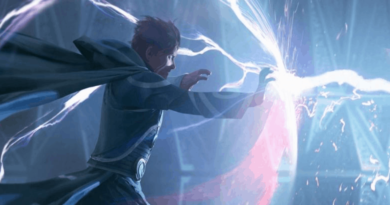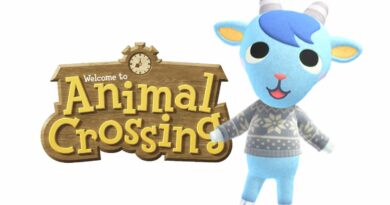Who Is The Environmental Journalist Gaia Vince?
![]()
![]() Environmental journalist Gaia Vince was born in 1973 or 1974. She is a Britishself-governing environmental journalist, broadcaster, and non-fiction writer with both Uk and Australian nationality. She works in The Guardian as well as BBC Online in a piece named Smart Planet. Gaia worked as the newspaper editor of Nature and the online editor of New Scientist. Her book, Adventures in the Anthropocene, was presented the 2015 Royal Society Winton Prize for Science Books. She was the very first female to do so. The Anthropocene, the assumed era that starts when human behaviors begin to exert a significant worldwide effect on Earth’s atmosphere.
Environmental journalist Gaia Vince was born in 1973 or 1974. She is a Britishself-governing environmental journalist, broadcaster, and non-fiction writer with both Uk and Australian nationality. She works in The Guardian as well as BBC Online in a piece named Smart Planet. Gaia worked as the newspaper editor of Nature and the online editor of New Scientist. Her book, Adventures in the Anthropocene, was presented the 2015 Royal Society Winton Prize for Science Books. She was the very first female to do so. The Anthropocene, the assumed era that starts when human behaviors begin to exert a significant worldwide effect on Earth’s atmosphere.
Environmental journalist Gaiacreated and hosted the Channel 4 TV show Escape to Costa Rica in 3 parts, premiered in April 2017. The program shot in Costa Rica with her husband Nick Pattinson as well as their two young kids, focused on the region’s eco-friendly efforts. Also, the program conveys idea on energy production, and ecological sustainability. Vince has hosted episodes of BBC News 4’s Inside Science many times.
Gaia Vince’s Books
Gaia Vince is the author of two novels. Below we will review the books of Environmental journalist Gaia Vince.
1. Adventures in the Anthropocene
We are all aware that our world is in trouble, which we are to blame. Yet, large data sets and specific disasters often obscure the entire picture of growth. Gaia was suffering from the privacy of her job as Life’s editor. Then she determined to tour the globe and witness for her what existence is like for those on the frontlines of these emerging realities. What she discovered was a group of individuals doing unexpected things.
During her trip, she encounters a guy, who is creating artificial glaciers in Nepal, as well as a person who is painting hills white to lure snowfall. A person who is creating islands out of trash in the Caribbean, as well as the energized islands of the Maldives. Those are regular individuals who are solving major problems in bizarre, creative, and successful ways. Whereas Environmental journalist Gaiais forthright about our species’ predicament, these beautiful tales, coupled with the latest research that supports Gaia’s knowledge and study. These offer a compelling, enlightening — and optimistic — study about what the Anthropocene implies for our survival.
2. Transcendence
Human readers will understand that a mental revolution — a major evolutionary shift that changed our minds. And transforming primitive people into civilized ones – produced a cultural boom. Furthermore, Environmental journalist GaiaVince claims in Transcendence that contemporary humans result from a complex symbiosis of our DNA, habitat, and civilization that dates back thousands of years. She shows how, via four essential components – fire, communication, elegance, and time – our race deviated from the developmental route of all other creatures. This trigged a chain reaction that propelled us all into the Space Age and far beyond. Transcendence, a challenging and beautiful film, depicted how an ape gained control of nature and transformed it.
Biography
She is a scientific journalist, writer, broadcaster, and public speaker who has received many awards. Gaia focuses on the interactions between individual systems and Earth’s solar system. So she has traveled across the globe to study this. She has written papers and books for the BBC, New Scientist, Australian Geographic, The Guardian, and Science, among others. Gaia creates and presents scientific movies for TV and radio, plus she travels the globe giving lectures. Gaia worked as a senior writer at Nature, Nature Climate Change, and New Scientist magazine.
She is still an Honorary Senior Research Fellow inside the Geography Department at UCL’s Anthropocene Centre. Global warming, communications technology, globalization, and a growing human population are altering our planet. Gaia is chronicling these shifts by speaking with regular people, researchers, and government leaders as the world enters the Anthropocene.
She wrote this after traveling around the globe for 800 days, giving a good summary of a trip that resulted lasting 2.5 years. So it served as the foundation for her work ADVENTURES IN THE ANTHROPOCENE that received the Royal Society Prize for Science Books. TRANSCENDENCE, her most recent book, delves at how we got here: how a clever monkey became a planet-dominating power. It rewrites the narrative of human “ascension,” explaining the co-evolution of biology, habitat, and culture. This is the narrative of how we came to be and where we’re going.
Gaia Vince Wins the British Science Book Prize
Gaia Vince has received the UK’s top prize for scientific novels, becoming the first woman writer to do so throughout the award’s almost 30-year record. Adventures in the Anthropocene are her account of the places and people she met on a massive worldwide trip. The book describes how people are affecting the environment. But, it also offers tales about how we are working to control and deal with that transformation. The recipient of the Royal Society Winton Prize will receive a cheque for £25,000 from the Royal Society. Several scientists use the term “Anthropocene” to characterize the period of humanity’s important impact on the Planet.
There is debate about when human actions began to alter natural systems, yet the consequences are undeniable now. Pollution, species extinction, over-exploitation of water and mineral reserves, plus global warming are all issues.
Meeting Challenges
Gaia was familiar with all the stats from her work as a scientific journalist. Yet, she needed to witness the effects for herself. Thus she quit her 9-to-5 job and purchased a one-way trip to Kathmandu to go on a personal adventure and experience a few of the world’s turbulence. She planned to stay gone for no more than six months. Although she and her bag were still traveling and speaking to others of their adventures two and a half years afterward.
Adventures in the Anthropocene aren’t a doom-and-gloom tome. It features a lot of inspirational personalities. These people use bottom-up methods to address specific problems, such as the guy who constructed his mountains within the Indian Himalayas to save water for his neighbors. And a Belizean who created an island ecosystem out of trash he gathered from the sea.





